Does Medical Insurance Cover Eye Exams? (2025 Guide for U.S. Patients)
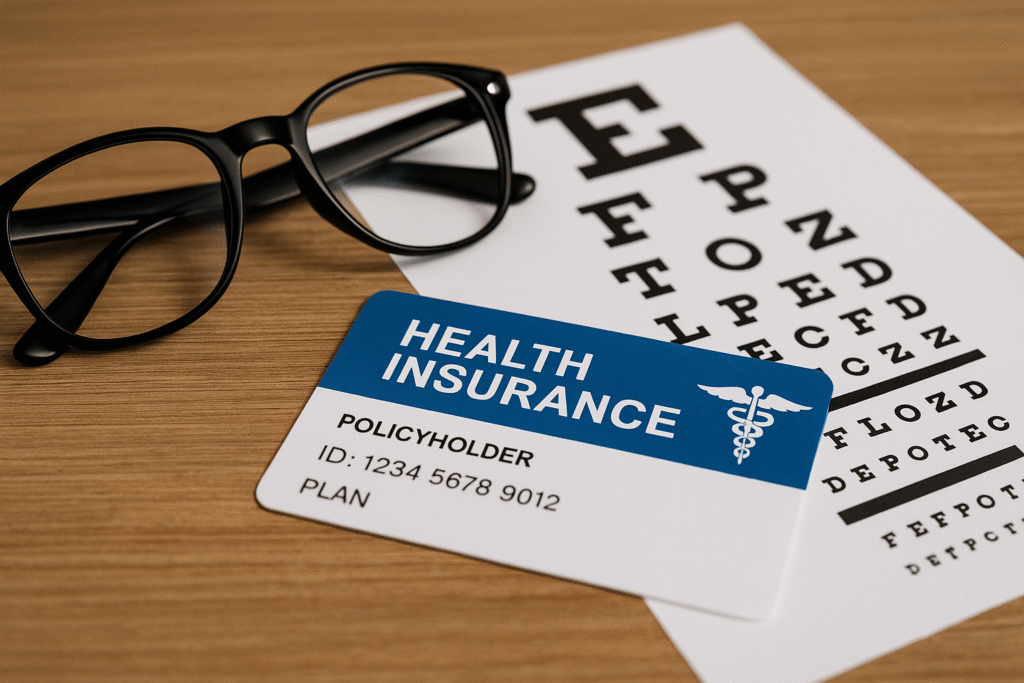
If you’ve ever wondered whether medical insurance covers eye exams, you’re not alone.
It’s one of the most confusing areas of U.S. healthcare — where “vision insurance” and “medical insurance” often overlap but aren’t the same thing.
In this guide, we’ll explain exactly when your medical insurance covers eye exams, what’s considered medical vs. routine, and how to make sure you never pay out-of-pocket unnecessarily.
The Key Difference: Vision Insurance vs. Medical Insurance
Before diving in, here’s the rule that confuses most people:
👉 Vision insurance covers routine vision care (glasses, contacts, checkups).
👉 Medical insurance covers eye health problems or medical conditions.
| Type of Care | Vision Insurance Covers | Medical Insurance Covers |
|---|---|---|
| Routine eye exams | ✅ Yes | ❌ No |
| Glasses & contact prescriptions | ✅ Yes | ❌ No |
| Eye infections / injuries | ❌ No | ✅ Yes |
| Diabetes-related eye exams | ❌ No | ✅ Yes |
| Glaucoma or cataract screenings | ❌ No | ✅ Yes |
| Vision changes due to medical issues | ❌ No | ✅ Yes |
💡 Quick Summary:
- Vision insurance = preventive / corrective care.
- Medical insurance = health-related or diagnostic care.
When Does Medical Insurance Cover Eye Exams?
Your medical insurance covers eye exams when the visit is related to a medical condition — not routine vision correction.
Here are examples where your medical plan will typically pay for your eye exam:
✅ Covered by Medical Insurance:
- Eye infections (pink eye, styes, conjunctivitis)
- Eye pain, swelling, or trauma
- Sudden vision loss or blurred vision
- Diabetes or hypertension-related eye complications
- Glaucoma or cataract diagnosis
- Double vision or light flashes
- Eye disease monitoring (retina, cornea, optic nerve)
🩺 In short: if your eye doctor is diagnosing, monitoring, or treating a medical problem, your medical insurance applies.
When Medical Insurance Won’t Cover Eye Exams
If your visit is for routine vision correction, it’s not covered under medical insurance.
You’ll need vision insurance or pay out-of-pocket.
❌ Not Covered:
- Routine eye exams for glasses or contacts
- Updating your vision prescription
- Eye refraction tests
- LASIK consultations (unless medically necessary)
💡 Refraction — the test used to determine your glasses prescription — is almost never covered under medical plans, even if the rest of your visit is.
Which Medical Insurance Plans Cover Eye Exams in 2025?
Here’s how the biggest U.S. providers handle it 👇
| Insurance Provider | Covers Medical Eye Exams | Notes |
|---|---|---|
| Aetna | ✅ Yes | Medical issues only (diabetes, glaucoma, infections) |
| Blue Cross Blue Shield (Anthem) | ✅ Yes | Diagnostic exams with CPT 92004/92014 covered |
| UnitedHealthcare | ✅ Yes | Eye diseases & medical visits |
| Cigna | ✅ Yes | Covers treatment-based exams |
| Kaiser Permanente | ✅ Yes | Integrated eye care in most regions |
| Medicare (Part B) | ✅ Conditional | Covers glaucoma, diabetes, macular degeneration exams |
| Medicaid | ✅ Varies by state | Often covers one medical or routine exam per year |
📍 Tip: Always confirm coverage using CPT codes (common ones: 92004, 92014, 99213, 99214) before your visit.
Average Eye Exam Costs (Without Coverage)
| Exam Type | Average Cost (U.S.) | Covered By |
|---|---|---|
| Routine Vision Exam | $80–$120 | Vision Insurance |
| Contact Lens Exam | $100–$200 | Vision Insurance |
| Medical Eye Exam (Infection, Diabetes) | $120–$250 | Medical Insurance |
| Comprehensive Exam (Dilation, Retinal Scan) | $150–$300 | Both (depends on reason) |
💡 If you have both medical and vision insurance, your provider will bill the correct plan automatically — depending on why you came in.
Real-World Example: Routine vs. Medical
Scenario 1:
You visit your optometrist because you need new glasses.
- Billed to: Vision Insurance
- Reason Code: Routine vision correction
✅ Covered by VSP, EyeMed, or Davis Vision.
Scenario 2:
You visit because your left eye is red and blurry.
- Billed to: Medical Insurance
- Reason Code: Eye pain / suspected infection
✅ Covered by Aetna, BCBS, or UnitedHealthcare.
Same doctor. Different coverage. Different codes.
How to Make Sure Your Exam Is Covered
- State your reason clearly:
When booking, say whether it’s for “a routine vision exam” or “a medical concern.” - Bring both insurance cards:
Your clinic can decide which plan to bill first. - Ask for CPT & ICD-10 codes:
Request the billing codes before your visit to check with your insurer. - Use in-network providers:
Out-of-network visits are usually denied for medical eye care. - Save documentation:
If your claim is denied, resubmission with diagnosis codes can overturn it.
Does Medical Insurance Cover Eye Exams – FAQ
Does medical insurance cover glasses?
❌ No, glasses and contacts fall under vision insurance or out-of-pocket expenses.
What about eye exams for diabetes?
✅ Yes, medical insurance (including Medicare Part B) covers diabetic eye exams annually.
Is glaucoma testing covered?
✅ Yes, when medically indicated or part of a diagnostic evaluation.
Can I use both medical and vision insurance for one visit?
Sometimes. Your clinic can bill medical for diagnostics and vision for refraction on the same day.
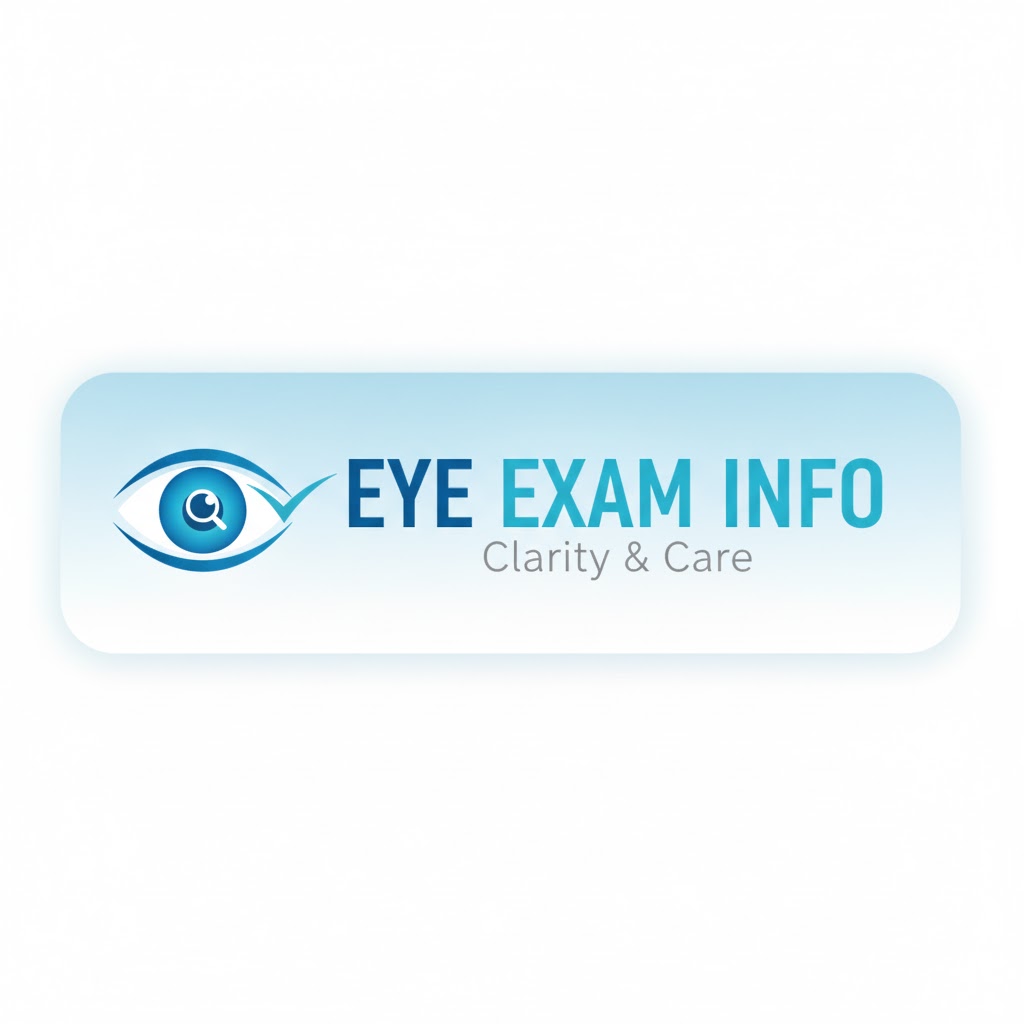
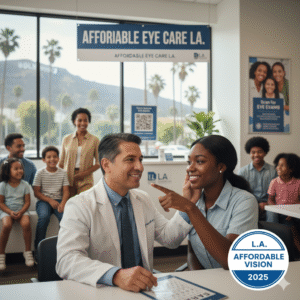
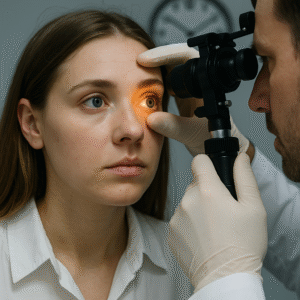
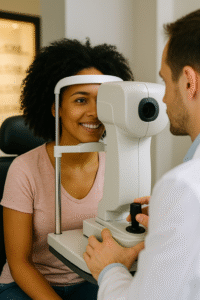
Leave a Comment
Your comment will be published after it has been approved. Please send comments that do not contain slang words.